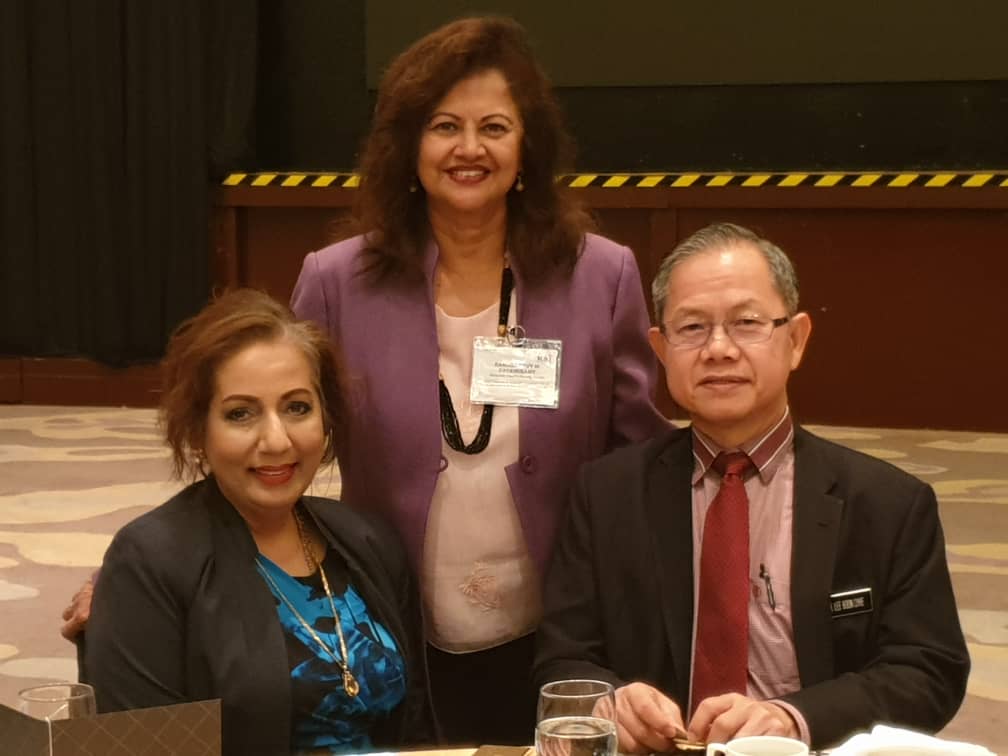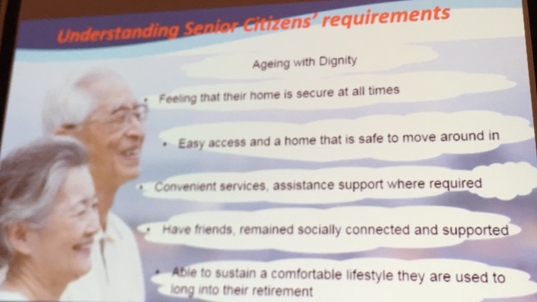The International Day of Older Persons on the 1st October presents an opportunity to highlight the important contributions that older people make to society and raise awareness of the opportunities and challenges of aging in today's world. SISWP President Anusha was invited to participate in a Longevity Economy Forum officiated by Malaysia's Deputy Health Minister Dr Lee Boon Chye, who is a cardiologist by profession.

26 September 2019
Worldwide life expectancies are increasing, societies are aging and fertility is plummeting. The UN predicts that the number of people over 60 will increase to 2 Billion by 2050 and the proportion of those over 80 will rise even faster. Asia will account for 62.3% of the world's aging population by 2050. What needs to happen to ensure quality of healthcare, assisted living services and financial security of the aging population?
Longevity presents a massive opportunity for health-care providers, insurance, technology firms and those that can create and bring innovative products and services to market, help societies adapt to living longer and better quality lives.
I was invited to participate in this Forum and learned that the No.1 need of all senior citizens is social interaction! This reassured me that Soroptimist Club membership will remain a viable and attractive option for senior women to contribute to society and thrive on friendships and a purposeful life.
The acute shortage of programmes and shared facilities for senior women presents Soroptimists with golden opportunities to create social enterprises that cater to the needs of senior women, especially those living alone. There was talk of creating special Apps, home care services, fitness programmes, workplace retraining, workplace ergonomics and for employers to achieve optimum productivity on the strengths of seniors who are "hi-touch" while young people are "hi-tech".
Studies showed that seniors who worked or were productive till 80 were healthier, happier and more socially inclined. Depression, dementia and other mental illnesses take root more often when minds are idle and people live alone or are neglected. All the more reason to be a Soroptimist, I say!
I was impressed by a social enterprise called Hire.Seniors that is making a big impact locally to unlock the true value of senior women with experience using flexibility and innovation to encourage senior women to be seasonal professionals on a part-time work basis. Senior women competently fill casual vacancies, clear backlog, and trouble-shoot in situations where employers face high staff turnover. Senior women have proven to have stronger work ethics, higher engagement and retention, reliable and dependable. Kudos to these golden girls.
This event was officiated by Malaysia's Deputy Health Minister Dr Lee Boon Chye, who is a cardiologist by profession. I personally discussed with the Minister the need for improvements and advancements for healthcare services and wellness programmes for the elderly, especially affordability, access and convenience.
A special highlight of the Forum was opportunities and prospects for retirement villages and shared living spaces, new housing models, the valuable role of youth, children and grandchildren, and shared services for seniors to enjoy independent living or assisted living with dignity and peace.
There is a great shortage of elderly caregiver services with capacity building and wholistic training being the key to solve this major problem across many of our countries. This is most urgent for urban and rural poor communities.
Soroptimists are encouraged to establish social enterprises for support programmes and services for the wellness, wellbeing and holistic care of senior people.
Anusha Santhirasthipam 
Federation President
Soroptimist International of the South West Pacific